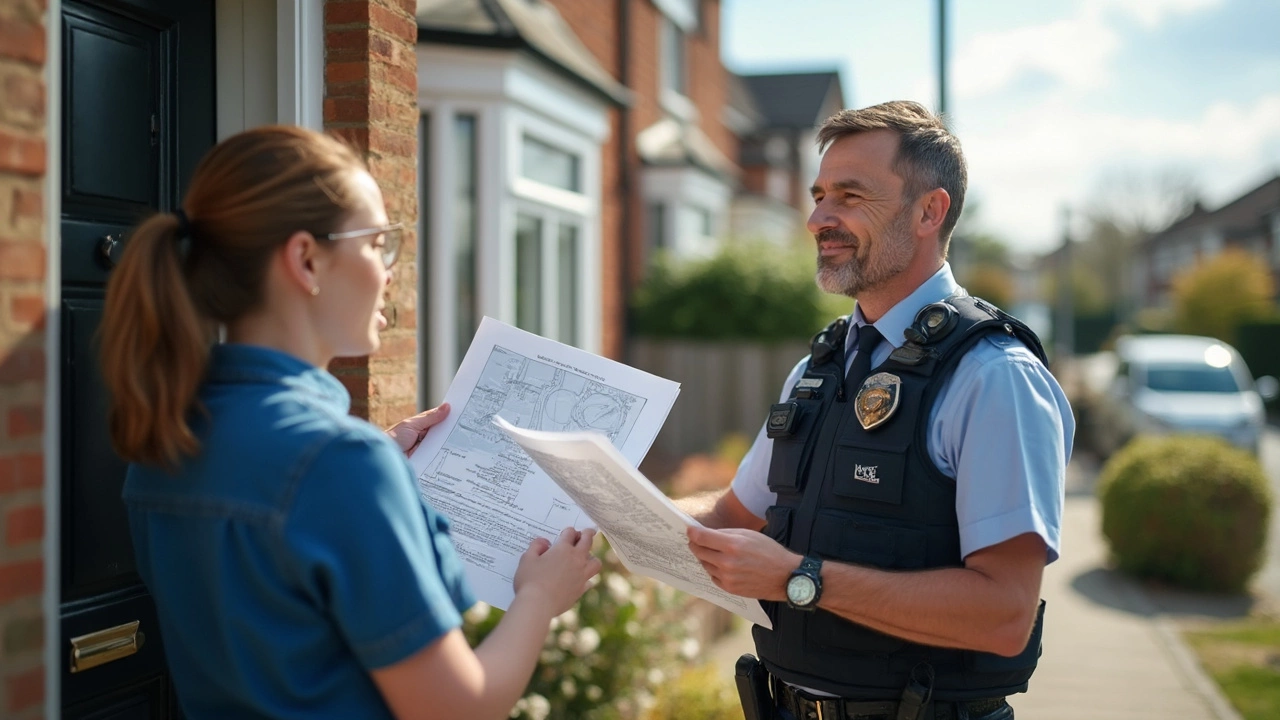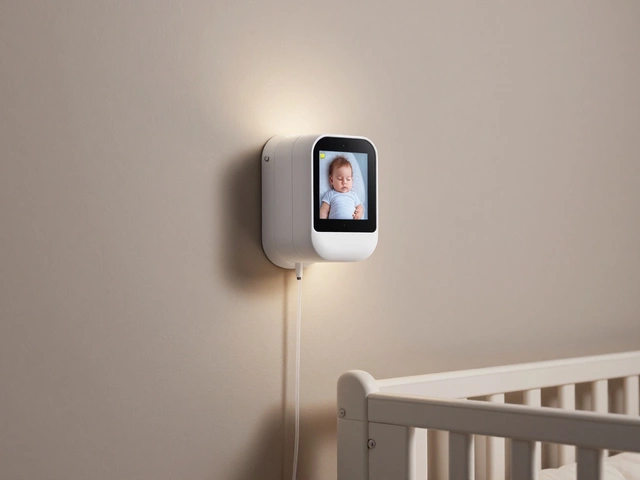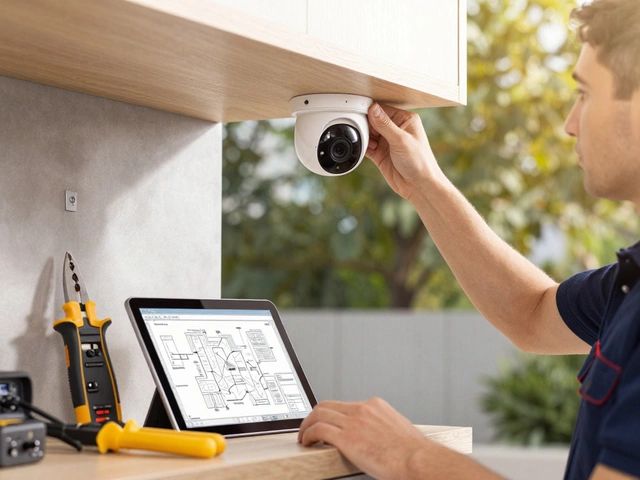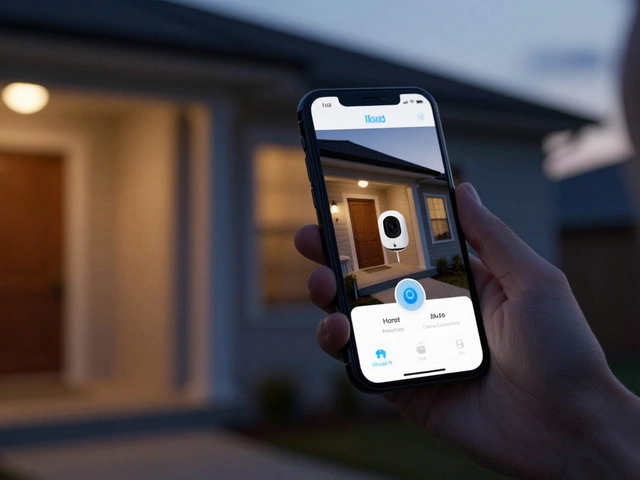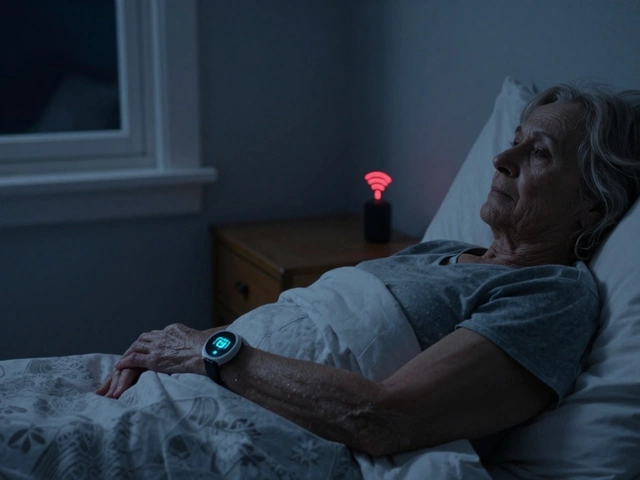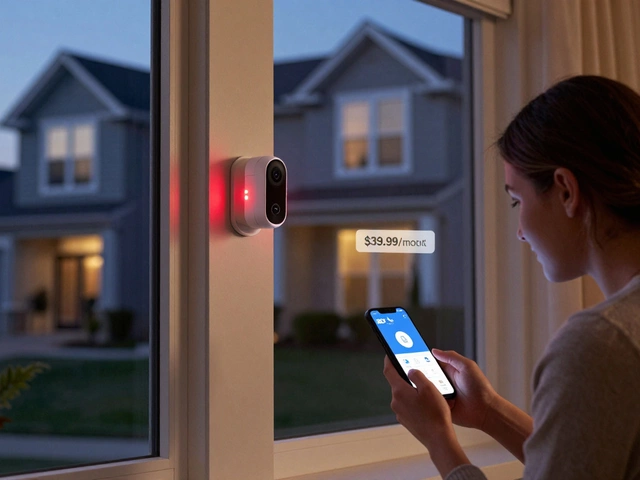So you want CCTV at home or your business, but you’re not sure how to get it officially approved? You’re not alone—rules around security cameras trip people up all the time. Miss a step and you might end up stuck, or worse, forced to take those shiny new cameras down.
The approval process isn’t always straightforward. Some areas barely blink if you stick up a camera. Others want you to fill out paperwork, pay fees, and make promises about where you point your lenses. The truth? Saving money on installation starts by skipping expensive mistakes like ignoring local rules or missing documents. Everything gets easier once you know what’s expected and plan for it upfront.
- Understanding the Approval Process
- What Documents Do You Need?
- Costs Linked to Approval and Permits
- Essential Tips for Fast-Tracking Approval
- Common Pitfalls to Dodge
Understanding the Approval Process
If you think you can just order cameras and bolt them to your wall, think again. In loads of cities, you need some official sign-off before setting up a CCTV installation. Skipping the approval can land you in trouble—a fine, an order to remove your cameras, or annoyed neighbors who don’t like being on film.
How hard is it to get approval? That depends on where you live and what kind of property you own. Let’s break down the basics.
- Private houses: In many places, you don’t need permission if your cameras only cover your own front yard. But as soon as you cover a public sidewalk or point at a neighbor’s window, you could trigger privacy laws.
- Apartments or condos: Expect to ask the homeowners’ association (HOA) or building management. Most shared buildings require written approval, especially for any cameras in hallways or shared spaces.
- Businesses: The rules get stricter—especially in the EU, UK, and Australia—where privacy rules (like GDPR) mean you have to inform people they’re being recorded. Some councils also require a permit or even a formal site plan.
The quick way to check? Call your local council or search their website for 'CCTV installation approval.’ They’ll often have a step-by-step online. For example, in London, the council openly lists what you need for different property types and where to file your request. In some US cities, the police department actually tracks commercial CCTV installation locations, and you have to register yours.
Some surprising data: A 2023 survey from SecurityInfoWatch showed about 42% of small business owners were unaware their city required CCTV approval. That means nearly half are risking fines or forced removals. It’s not just a formality; it’s about protecting your investment and avoiding drama down the line.
So, before you drill any holes, figure out if you need green lights from anyone—otherwise you could be setting yourself up for wasted cash and serious hassle.
What Documents Do You Need?
If you're looking to get your CCTV installation cost sorted and everything above board, paperwork is a big deal. Exactly what you need depends on where you live and what kind of property you’re securing. In most cities, the process isn’t wild, but there’s zero point skipping a document that could save you a ton of hassle later.
Here’s what usually lands on the checklist for a standard CCTV approval:
- Application Form: Local councils or property management often require you to fill out an application. This asks for details about where and why you’re installing cameras. Have drawings or a simple map ready showing where the cameras will go.
- Site Plan or Layout: They want to see a basic floor plan pointing out camera locations. Usually, nothing fancy—a clear printout or hand-drawn sketch is fine as long as it’s readable.
- Permission Letter: If you rent, grab written approval from your landlord or building management. Skipping this is the fastest way to get rejected.
- Neighbor Consent (sometimes): For shared properties or apartments, you might need written OKs from neighbors. Councils like this if cameras point at any area shared by others.
- Specs of the Cameras: Some councils care about resolution, whether there’s audio, and the direction the lens faces. Keep tech specs on hand in case anyone asks.
Don't forget—some areas (especially cities like London or Sydney) also want proof your CCTV installation won’t record more public space than necessary. If your camera picks up the street, you might have to show you can limit the view, like masking parts of the image.
The most common mistake? People ignore the rules for apartments or blocks with homeowner associations. Almost half of CCTV permit rejections come from missing landlord or HOA consent, according to a survey of strata managers in Australia from 2023.
Here’s a quick reference of what local councils often ask for during the CCTV approval process:
| Document | Who Needs It? | Why? |
|---|---|---|
| Application form | Everyone | Shows intent and details |
| Site plan | Home & business | Camera layout proof |
| Landlord/HOA consent | Renters, share buildings | Permission required |
| Neighbor consent | Shared/hybrid spaces | Privacy issues |
| Camera specs | Matter for high-res systems | Tech/legal checks |
Always double-check what your council or building manager expects before buying the cameras or hiring an installer. Rules might seem small, but skipping one bit of paper can mean losing your investment—or worse, getting fined.
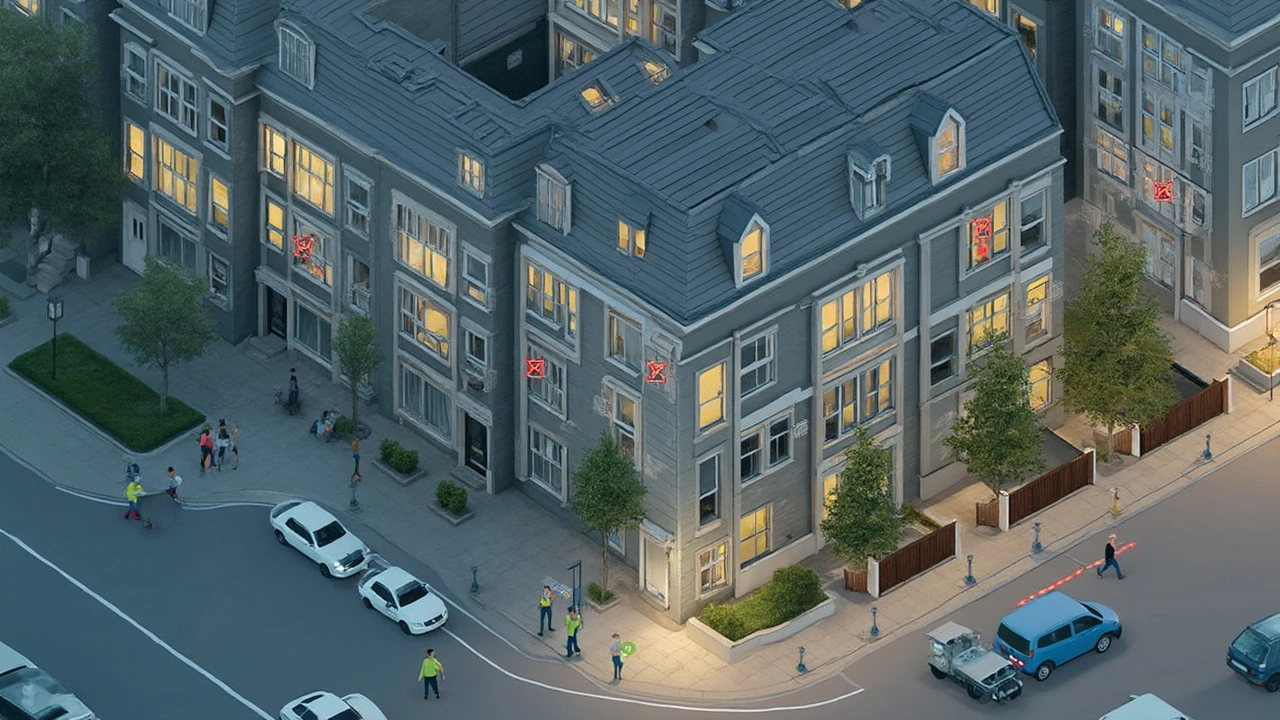
Costs Linked to Approval and Permits
Getting approval for your CCTV installation isn’t just a matter of filling out a form and letting the cameras roll. Here’s where things can start to add up, especially if you skip checking what your city or council actually wants.
The actual cost for a permit might swing pretty wide—from $25 for a basic home system in some small towns, to $500 or more for a business setup in a big city. If you’re in a gated community or an apartment block, you might even have to pay a one-time review fee to your building association on top of that. Don’t forget those annoying admin charges that tend to sneak in.
"It's common to see permit fees bundled with inspection or compliance checks. If you miss a required step, you might end up paying double for re-inspection," says Michael Blackwood, Security Industry Analyst at SafeTech Advisors.
Here’s what usually gets wrapped into the costs:
- CCTV approval permit fee – what you pay local government or the building owners for the green light.
- Plan review charge – sometimes they want to review your camera locations before saying yes.
- Site inspection rate – some places send someone out to make sure the work checks out. This can run $50 to $100 each time.
- Renewal fees – a few cities want you to re-apply every couple of years or when you add more cameras.
For a quick idea, check out this rough cost comparison table from April 2025:
| Location | Home Permit Cost | Business Permit Cost | Site Inspection Cost |
|---|---|---|---|
| Houston | $40 | $100 | $75 |
| Los Angeles | $70 | $250 | $100 |
| Rural Texas | $25 | $50 | Varies |
Don’t forget—CCTV installation cost can jump higher if your property is a heritage building or sits in a strict privacy zone. In those cases, expect more paperwork and possibly paying for extra consultations. The trick: Always call your city’s permit office before pulling out your wallet. They can tell you every fee upfront so you’re not dealing with any nasty surprises later.
Essential Tips for Fast-Tracking Approval
If you want your CCTV approved quickly, a few smart moves will save you weeks of waiting and keep your CCTV installation cost down. Some councils or housing associations see security cameras as a hot topic, so it helps to show you know and respect the rules from the start.
Here’s what works best if you don’t want any hold-ups:
- Sort Your Paperwork in Advance: Don’t wait to collect documents until asked. Most places want proof of ownership or lease, a plan showing where cameras go, and a short note explaining why you need them. Some areas even need a neighbor’s OK in writing if the camera covers shared spaces.
- Ask for the Official Checklist: Local authorities or housing associations often have a checklist online or at the office. Find it and use it—missing one silly form is the main reason applications get sent back.
- Highlight Your Security Needs: If your building’s had break-ins, vandalism, or you run a shop with cash handling, mention it. This shows you’re responding to real risks, not just being nosy, which speeds up approval.
- Get a Pro Installer Early: Professional installers don’t just mount cameras—they know exactly what forms and permissions you’ll need. Use their experience to dodge rookie mistakes that cause delays. A lot of companies will even handle the paperwork for you as part of their fee. It’s worth asking.
- Double Check Camera Placement: Never point cameras at public pathways or a neighbor’s door or window unless you want a complaint (and a denied permit). Check the field of view now, not after installation. That way, if someone inspects, you’re covered.
If you’re curious about wait times, here’s what approval typically looks like in major UK cities:
| City | Average Processing Time (working days) | Typical Application Fee (£) |
|---|---|---|
| London | 12-15 | 60-120 |
| Manchester | 10-14 | 50-100 |
| Birmingham | 8-11 | 40-90 |
One more thing: if your CCTV installation cost includes setup across shared entrances or communal parking, your building’s management might want a special meeting. Get on the agenda as soon as possible; these meetings only happen once a month in most complexes.

Common Pitfalls to Dodge
Even if you’re pumped to boost your security, there’s actually a bunch of stuff that can mess up your CCTV installation cost plan if you don’t watch out. Getting tripped up on approvals can quickly turn a simple job into a massive headache—or extra expense. Here’s where people usually slip up:
- Skipping Local Council Approvals: Probably the biggest mistake people make is thinking they can just pop up cameras without asking anyone. In many cities, local councils or building associations have strict rules. Ignore them and you risk having to take it all down, possibly paying fines ranging from $200 up to $5,000, depending on your location.
- Pointing Cameras at the Wrong Spots: Did you point a camera so it captures your neighbor’s backyard? That’s usually a privacy violation, and it’s a surefire way to get complaints. Laws can require you to keep cameras focused on your own property. Not doing so can hold up your approval—or get it yanked altogether.
- Using the Wrong Equipment: Tempted to save by ordering super-cheap cameras online? Some councils only approve security cameras that meet certain technical standards or brands. If you install gear that doesn’t pass, you may have to rip it out and start over, doubling your CCTV installation cost.
- Missing Required Signs or Notices: In a lot of places, you’re legally supposed to put up signs letting people know you’re recording. Forget this? Approval can be delayed, or worse, you could face complaints that stall your permit.
- Not Budgeting for Permit Fees: Thinking your only expense is the camera itself can catch you off guard. Real talk: permit costs can range from $70 to $500 depending on council, and sometimes more if you’re in commercial premises.
Here’s a quick glance at common costs and fines folks run into when missing key steps:
| Mistake | Typical Cost/Fine (2024) |
|---|---|
| Skipping council permit | $200–$5,000 fine |
| Inadequate warning signs | $100–$300 fine |
| Unapproved camera equipment | $150–$2,000 for reinstallation |
Don’t let these slip-ups drain your wallet or stall your project. Checking local rules and budgeting for approvals and signs right from the start saves you time, frustration, and real money. The sooner you handle these details, the smoother your whole CCTV installation cost journey will be.

